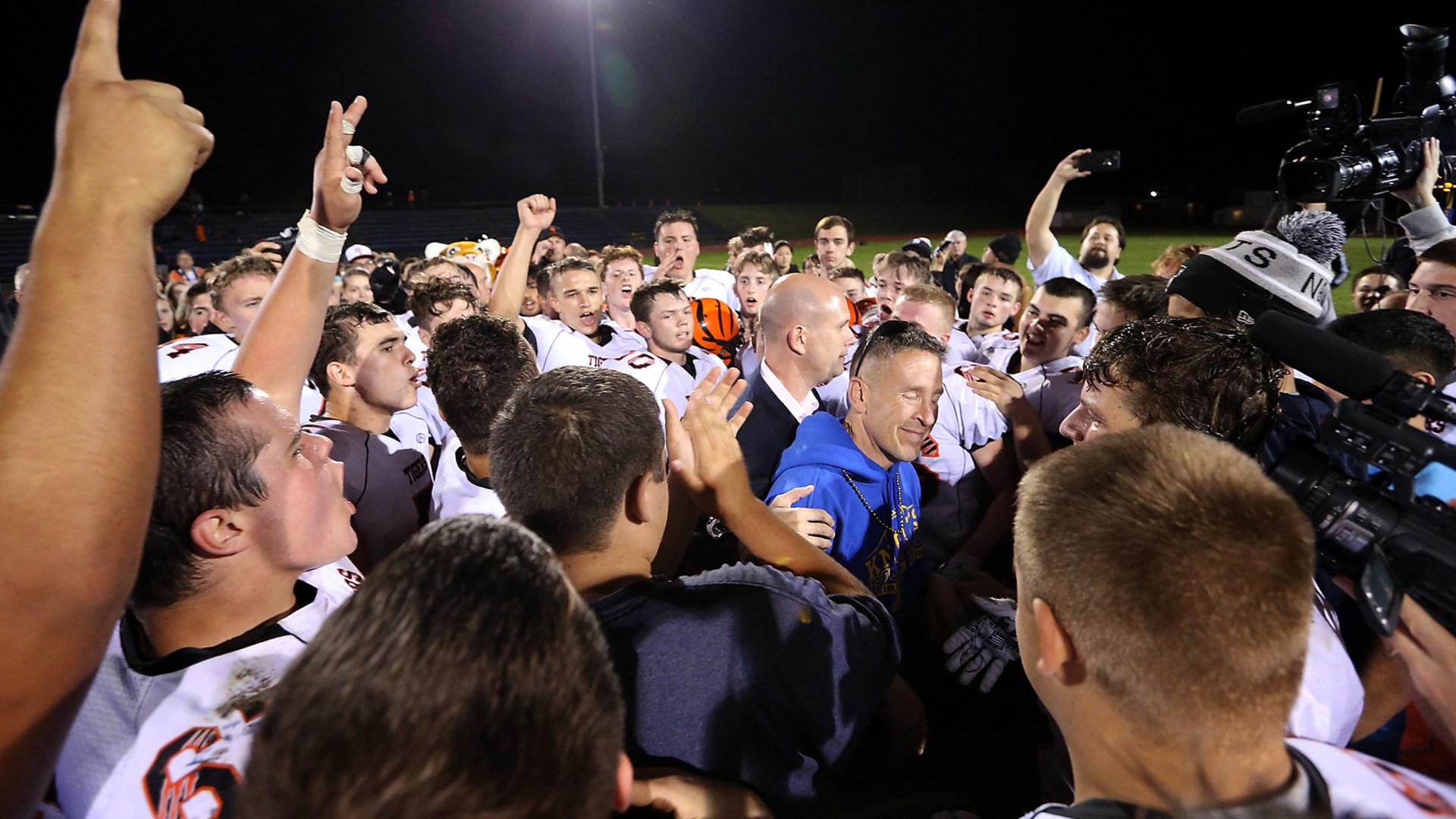It is a fact that Joseph A. Kennedy, a former coach of the Bremerton Knights in the suburbs of Seattle, prayed on the 50-yard line after high school football games in the fall of 2015. But everything about those prayers is up for debate.
Were they public or private?
Was Kennedy praying just for himself, as an exercise of his faith, or as an official representative of the school district?
Did players join of their own accord, or were they pressured to participate?
Kennedy and the Washington state school district do not even agree on whether he was fired or failed to apply to extend his contract, or whether he ended his prayers with “amen.”
Those disagreements—big and small—are now going to the highest court in the land.
The US Supreme Court decided on Friday that it will consider the disputed facts and, more importantly, whether or not they add up to a violation of the First Amendment—and if so, by whom.
Kennedy’s attorneys argue that he was forced out of his coaching position in violation of his First Amendment–protected right to exercise his faith. The school district argues, on the other hand, that the coach’s prayers violated the same amendment’s prohibition against respecting an establishment of religion, since the coach was acting as a representative of the public school.
The court declined to hear the case in 2019. Justice Samuel Alito wrote at the time that “important unresolved factual questions would make it very difficult if not impossible” to consider the constitutional questions raised by the coach’s prayers.
He also argued, though, in a statement joined by justices Clarence Thomas, Neil Gorsuch, and Brett Kavanaugh, that the lower court’s rulings in favor of the school district were “troubling,” and “may justify review in the future.”
The case went back to the Ninth Circuit of the federal court, which ruled against Kennedy again. Kennedy appealed the case back to the Supreme Court, and the nine justices, now with the addition of Amy Coney Barrett, decided to consider it.
Kennedy was a varsity and junior varsity assistant coach for seven years, according to court records. Then an opposing coach complained to the school district that what had appeared to be a motivational postgame speech, with students gathered around Kennedy and Kennedy raising a team helmet in his right hand, was actually a prayer. The other coach felt that Kennedy was praying at the students more than with them.
The school also heard from one player’s father that his son was concerned he wouldn’t get to play much unless he joined in the prayer.
“No child attending public school should have to pray to play school sports,” said Rachel Laser, the president of Americans United for Separation of Church and State, which represents the school district. “No student should ever be made to feel excluded—whether it’s in the classroom or on the football field—because they don’t share the religious beliefs of their coaches, teachers or fellow students.”
Kennedy’s attorneys, on the other hand, say there’s no evidence that the coach put pressure on anyone. They say it was students’ idea to join him.
“Initially, Kennedy prayed quietly and alone. After several games, some [Bremerton High School] players asked him what he was doing and whether they could join him,” the lawyers wrote. “Kennedy told them ‘This is a free country.’”
From the coach’s perspective, the post-game prayers became a tradition and continued for seven years—sometimes with many students joining him, sometimes with only a few—until the school district decided the prayers were a legal problem.
Kennedy was ordered to stop, and he did for one game in September 2015. But then he felt so convicted that he’d betrayed his faith that he turned around before he got home, returned to the empty field, and prayed.
He informed the district school board that he had a “sincerely held religious belief that he is compelled to pray following each football game,” and at after the next game, he prayed at the 50-yard line again. He was joined by a crush of students, supporters, and media.
Kennedy was subsequently suspended and sued for his right to pray on the field. According to his attorneys, it became clear that he was going to have to fight for his right to exercise his religion while employed by a school.
“Whatever is true for the kingdom of heaven,” they wrote, “the First Amendment is not reserved for the meek.”
A number of religious liberty advocates have filed friend-of-the-court briefs, urging the Supreme Court to consider Kennedy’s case and take his side. The Ethics and Religious Liberty Commission of the Southern Baptist Convention, joined by the National Association of Evangelicals, the Billy Graham Evangelistic Association, and 11 other Christian groups, filed a brief saying the case “dramatizes a wrongheaded view” of the First Amendment “that this court should take the opportunity to correct.”
The two parts of the First Amendment’s guarantee of the freedom of religion shouldn’t be pitted against each other, they argue, and a praying coach doesn’t represent a government preference for a particular faith, even when kneeling on a football field.
“Obviously, a public school teacher wears two hats—that of a private citizen and that of a government worker,” the brief says. “No one is confused by that.”
The court case suggests, however, that that too is up for debate.












